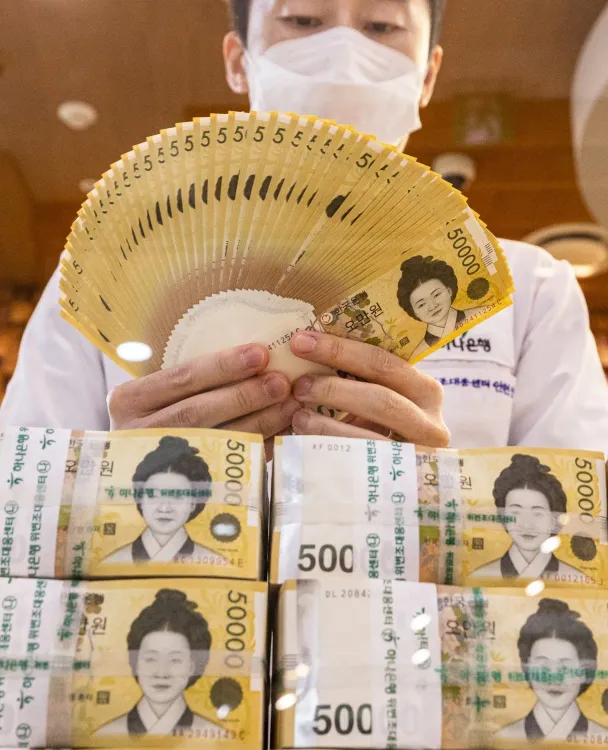Why Did Seoul Shares Plummet at Their Worst Rate in Four Months?

Synopsis
Key Takeaways
- South Korean stocks faced their steepest decline in four months.
- The KOSPI index dropped by 3.88 percent.
- The proposed tax revisions aim to increase taxes on corporations and investors.
- The local currency surpassed the 1,400-won mark against the U.S. dollar.
- Market sentiment is negatively affected by government policies.
Seoul, Aug 2 (NationPress) South Korean stocks experienced a significant decline, marking the steepest fall in almost four months on Friday. This downturn was primarily influenced by investor sentiment deteriorating due to the government's proposed tax reforms aimed at increasing taxes on both corporations and stock investors. The local currency sharply depreciated against the U.S. dollar, surpassing the 1,400-won threshold for the first time since May.
The benchmark Korea Composite Stock Price Index (KOSPI) plummeted by 126.03 points, or 3.88 percent, closing at 3,119.41. This represented the largest daily decrease since April 7, when the index fell by 5.57 percent, as reported by Yonhap news agency.
Trading activity was moderate, with 504.4 million shares exchanged, valued at 15.1 trillion won (US$10.8 billion), and a stark disparity in performance between losers and winners, tallying at 882 to 37.
Both foreign investors and institutions contributed to the negative trend, offloading a net 656.5 billion won and 1.07 trillion won worth of shares respectively, while individual investors made a modest purchase of 1.63 billion won.
Analysts attributed this market downturn to the government’s tax proposal, which was disclosed after the market's closing the previous day.
The proposal includes an increase in the corporate tax rate by one percentage point across all brackets, marking a reversal of the previous administration’s expansionary fiscal policies.
Additionally, the government intends to lower the minimum threshold for capital gains tax, significantly increasing the pool of taxable investors.
Lee Jae-won, an analyst from Shinhan Securities Co., stated, "The government's stimulus, including the recent revision of the Commercial Act, was a main driver of the stock market in July. However, the tax revision dampens investor enthusiasm."
Most stocks ended the day in negative territory.
Market leader Samsung Electronics fell by 3.5 percent to 68,900 won, while its competitor SK Hynix dropped 5.67 percent to 258,000 won.
Leading automotive manufacturer Hyundai Motor experienced a decline of 1.41 percent to 210,000 won, and its affiliate Kia decreased 1.47 percent to 108,000 won.
Defense giant Hanwha Aerospace fell 5.72 percent to 939,000 won, while LIG Nex1 slid 5.75 percent to 592,000 won.
Banking stocks also faced declines, with Hana Financial Group slipping 3.63 percent to 82,300 won and KB Financial Group dipping 4.42 percent to 106,000 won.
Conversely, major shipbuilder Hanwha Ocean saw an increase of 4.54 percent to 117,400 won as the company is anticipated to play a crucial role in a $150 billion shipbuilding cooperation initiative proposed by the South Korean government as part of the Seoul-Washington tariff agreement.
As of 3:30 p.m., the local currency was quoted at 1,401.4 won against the dollar, down 14.4 won from the previous session, marking the lowest won-dollar rate since May 14, when it stood at 1,420.20 won.
Bond prices, which typically move inversely to yields, closed lower. The yield on three-year Treasuries increased by 1.8 basis points to 2.478 percent, while the return on the benchmark five-year government bonds rose by 3.5 basis points to 2.623 percent.










